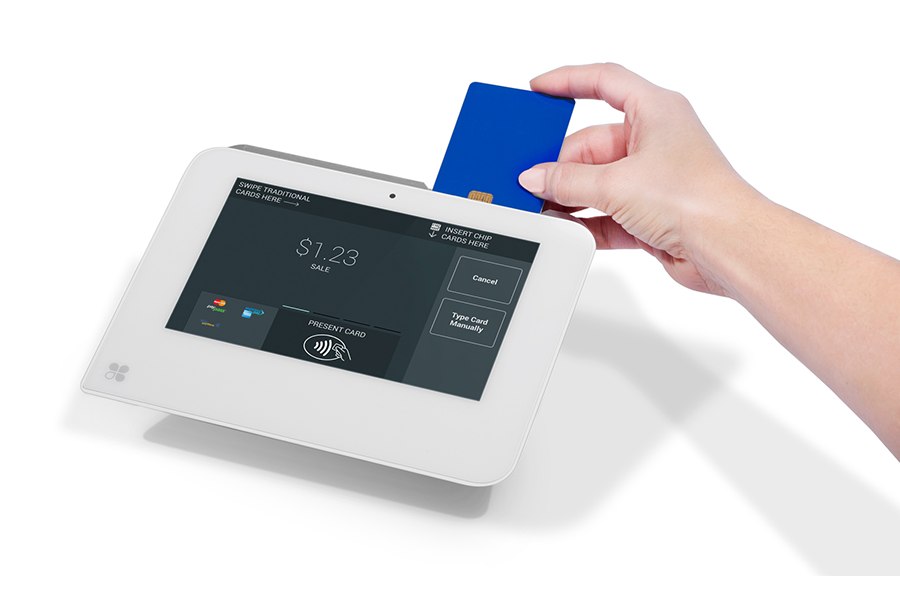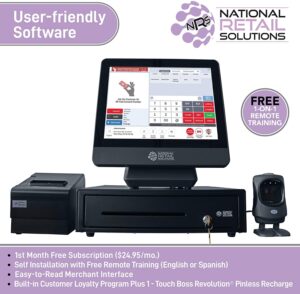
Looking to give your small business an extra boost in 2023? Look no further! In this article, you’ll discover six free merchant accounts that can help take your business to new heights. These merchant accounts are specifically designed to cater to small businesses, offering a range of benefits and features that can help streamline your payment processes, increase sales, and improve customer satisfaction. Whether you’re just starting out or looking to take your business to the next level, these free merchant accounts are sure to give your small business the edge it needs to thrive in 2023.
1. Introduction to Merchant Accounts
What is a merchant account?
A merchant account is a type of bank account that allows businesses to accept payments from customers using various methods, such as credit cards, debit cards, and electronic checks. It acts as an intermediary between the business and the customer’s payment provider, ensuring that funds are securely transferred.
Why do small businesses need merchant accounts?
Small businesses need merchant accounts to streamline their payment processes and provide convenient payment options to their customers. By accepting electronic payments, businesses can attract a larger customer base and increase sales. Additionally, having a merchant account enhances credibility and professionalism, which is crucial for the growth and success of small businesses.
Benefits of using merchant accounts for small businesses
There are several benefits of using merchant accounts for small businesses. Firstly, accepting credit and debit card payments increases transaction speed and efficiency, reducing the need for cash transactions. This not only saves time but also reduces the risk of human error associated with manual cash handling.
Furthermore, merchant accounts offer improved security measures, protecting businesses and their customers from fraudulent activities. With encryption technology and built-in security features, customers can have peace of mind when making online payments.
Merchant accounts also provide businesses with detailed transaction data and analytics, enabling them to gain valuable insights into customer behavior and preferences. This information can be utilized to enhance marketing strategies and improve customer satisfaction.
2. Importance of Free Merchant Accounts
Why choose free merchant accounts for small businesses?
Free merchant accounts are especially beneficial for small businesses with limited budgets and resources. By opting for a free merchant account, businesses can save on upfront costs associated with setting up a traditional account. This allows them to allocate their funds towards other critical aspects of their operations, such as inventory or marketing.
Additionally, free merchant accounts often come with no monthly fees or setup fees, making them an attractive option for small businesses looking to minimize their expenses. These accounts offer a cost-effective solution for accepting electronic payments without compromising on the security and reliability of the payment processing system.
Cost-saving advantages of free merchant accounts
Apart from the absence of monthly fees, free merchant accounts typically offer competitive transaction rates, allowing businesses to save on processing fees. This can significantly impact a small business’s bottom line, especially when processing a large volume of transactions.
Moreover, free merchant accounts often integrate seamlessly with popular e-commerce platforms and payment gateways, eliminating the need for costly software or hardware installations. This ease of integration further reduces expenses for small businesses.
Common misconceptions about free merchant accounts
There are some common misconceptions about free merchant accounts that may deter small businesses from considering them as a viable option. One misconception is that free accounts lack adequate customer support. While it is true that some free merchant account providers may offer limited customer support compared to paid options, this is not the case across the board. Many providers offer comprehensive customer support to assist businesses with any issues or concerns.
Another misconception is that free accounts may have hidden fees or less secure payment processing systems. While it is essential to research and choose a reputable provider, many free merchant account options offer the same level of security and reliability as their paid counterparts. It is crucial to read the terms and conditions and understand any potential fees or limitations associated with a free merchant account before making a decision.

3. PayPal
Overview of PayPal merchant account
PayPal is one of the most widely recognized and trusted payment processing platforms in the world. It offers a range of merchant account solutions that cater to the needs of small businesses. With a PayPal merchant account, businesses can accept payments online, in-store, or on-the-go through various devices.
Features and benefits of PayPal for small businesses
PayPal offers several features and benefits that make it an attractive choice for small businesses. Firstly, it provides a seamless and user-friendly payment experience for customers, allowing them to make secure payments without the need for a PayPal account. This convenience can lead to increased conversion rates and customer satisfaction.
Additionally, PayPal offers powerful fraud protection and seller protection policies, safeguarding businesses from unauthorized transactions and chargebacks. This helps minimize financial losses and provides peace of mind to small business owners.
PayPal also integrates with numerous e-commerce platforms and provides comprehensive reporting tools, allowing businesses to track sales, manage inventory, and analyze customer behavior. This valuable data can guide business decisions and contribute to growth and success.
Limitations and considerations for using PayPal
While PayPal offers many benefits, there are some limitations and considerations to keep in mind. One limitation is that PayPal holds funds for a certain period for new or high-risk businesses to mitigate fraud risks. This delay in accessing funds can pose challenges for cash flow management, especially for small businesses that rely on the immediate availability of funds.
Another consideration is that PayPal’s transaction fees may be higher compared to some other merchant account providers, particularly for international transactions or high-volume businesses. It is important to carefully review and compare the fee structures before committing to a PayPal merchant account.
Overall, PayPal can be an excellent choice for small businesses looking for a reliable and widely accepted payment processing solution. However, it is essential to assess individual business needs and financial considerations to determine if PayPal is the best fit.
4. Square
Introduction to Square merchant account
Square is a leading provider of merchant services, offering innovative solutions for small businesses of all types. It enables businesses to accept payments in-person, online, or over the phone using a variety of Square hardware and software options.
Advantages of Square for small businesses
Square offers several advantages that make it a popular choice for small businesses. Firstly, it provides a user-friendly and intuitive interface, allowing businesses to set up and start accepting payments quickly. This ease of use is especially beneficial for small businesses that may not have dedicated IT or technical support staff.
Square also offers competitive pricing, with transparent and straightforward fee structures. Businesses can navigate through various pricing options to find the most suitable plan for their specific needs.
Furthermore, Square provides businesses with valuable tools and features to help manage their operations effectively. From inventory management and employee scheduling to customer relationship management, Square offers a comprehensive suite of tools designed to streamline business processes.
Drawbacks and limitations of Square
While Square offers many benefits, there are some drawbacks and limitations to consider. One limitation is that Square’s payment processing fees may be higher compared to certain competitors, especially for businesses with high transaction volumes. It is essential to compare pricing structures and evaluate the potential impact on profitability.
Additionally, Square’s hardware options may not be suitable for all businesses. While their point-of-sale (POS) systems are versatile and adaptable, certain niche businesses may require more specialized hardware options. It is important for businesses to assess their specific needs and compatibility before choosing Square as their merchant account provider.
Overall, Square can be a game-changer for small businesses, offering a range of features and services that enhance operational efficiency and improve the customer experience. However, it is crucial to evaluate fees, hardware compatibility, and individual business requirements before making a decision.

5. Stripe
Overview of Stripe merchant account
Stripe is a globally recognized and widely used payment processing platform that focuses on helping businesses accept and manage online payments. It offers a range of developer tools and APIs that allow businesses to customize and integrate payment solutions into their websites or mobile applications.
Key features and benefits of using Stripe
Stripe provides numerous features and benefits that make it an attractive option for small businesses. Firstly, it offers a seamless and secure payment experience for customers, enabling businesses to accept payments from around the world. With support for over 135 currencies and extensive international payment options, Stripe facilitates global expansion for small businesses.
Additionally, Stripe offers powerful fraud detection and prevention tools, protecting businesses from fraudulent transactions and reducing the risk of chargebacks. This can save businesses valuable time and resources associated with resolving payment disputes.
Stripe also provides robust reporting and analytics features, allowing businesses to gain insights into their revenue, customer behavior, and sales trends. This information can aid in strategic decision-making and drive business growth.
Factors to consider when using Stripe
While Stripe offers numerous advantages, there are some factors to consider before using it as a merchant account provider. One consideration is that Stripe primarily focuses on online payment processing and may not be as suitable for businesses with in-person or offline sales. It is important to evaluate compatibility and integration options based on the specific needs of the business.
Another factor to consider is the technical expertise required to implement Stripe’s developer tools and APIs effectively. While Stripe offers extensive documentation and resources, businesses may require IT or development support to fully leverage its capabilities. It is essential to assess the availability of technical resources and expertise within the business before choosing Stripe.
In conclusion, Stripe is a powerful payment processing platform that provides businesses with the tools and features necessary to excel in the online marketplace. However, it is vital to consider compatibility, technical requirements, and specific business needs before making a decision.
6. Shopify
Introduction to Shopify merchant account
Shopify is a well-known e-commerce platform that offers a complete solution for businesses looking to establish an online presence and sell products or services. In addition to its website-building capabilities, Shopify provides a built-in merchant account, simplifying the process of accepting online payments.
Benefits of using Shopify for small businesses
Shopify offers several benefits that make it an attractive choice for small businesses. Firstly, it provides an intuitive and user-friendly interface, allowing businesses to create customized online stores without requiring extensive technical knowledge or coding skills. This accessibility makes it an excellent option for small businesses looking to establish an online presence quickly.
Additionally, Shopify offers a range of professional themes and customizable design options, enabling businesses to create visually appealing and engaging online stores. This enhances the overall customer experience and helps businesses stand out in a crowded digital marketplace.
Furthermore, Shopify provides robust inventory management, order tracking, and customer management features. These tools streamline business operations and make it easier for businesses to handle day-to-day tasks efficiently.
Limitations and pricing options of Shopify
While Shopify offers numerous benefits, there are some limitations and pricing considerations to keep in mind. One limitation is that while Shopify provides a built-in merchant account, it is primarily designed for online payments. This may not be suitable for businesses with in-person or offline sales.
In terms of pricing, Shopify offers various plans with different features and fee structures. Small businesses should carefully assess their requirements and select a plan that aligns with their budget and growth objectives. It is also important to consider potential transaction fees associated with using external payment gateways on Shopify.
Overall, Shopify provides a comprehensive platform for small businesses to build and manage their online stores. However, it is essential to consider compatibility, pricing options, and the specific needs of the business before committing to Shopify as a merchant account provider.

7. Payline
Overview of Payline merchant account
Payline is a payment processing company that offers a range of merchant services tailored to the needs of small businesses. Payline provides businesses with the ability to accept credit and debit card payments through various channels, including in-store, online, and mobile.
Features and advantages of Payline for small businesses
Payline offers numerous features and advantages that make it a compelling choice for small businesses. Firstly, Payline provides businesses with comprehensive payment processing solutions, including traditional countertop terminals, virtual terminals for online payments, and robust mobile payment options. This versatility enables businesses to accept payments in various ways and locations, catering to the preferences and needs of their customers.
Additionally, Payline offers competitive pricing and transparent fee structures. Businesses can choose from different pricing plans based on their transaction volume and specific requirements. This flexibility allows for scalability and provides cost-saving opportunities for small businesses.
Payline also prioritizes excellent customer service, offering dedicated support to assist businesses with any concerns or issues. Their responsive and knowledgeable customer support team is readily available to provide guidance and resolve any payment-related challenges.
Considerations and fees associated with Payline
While Payline offers many advantages, there are some considerations and fees associated with using their merchant services. One consideration is that Payline may require a contract or commitment period, which can vary depending on the plan or pricing option chosen. It is important to review the terms and conditions and assess the suitability of the commitment period for the specific business.
Regarding fees, Payline charges transaction fees and has different pricing structures depending on the volume and type of transactions. It is crucial to understand the fee structure and how it may impact the business’s profitability and cash flow.
In conclusion, Payline provides small businesses with comprehensive payment processing solutions and outstanding customer support. However, it is essential to review contracts, assess fees, and consider individual business requirements before selecting Payline as a merchant account provider.
8. Amazon Pay
Introduction to Amazon Pay merchant account
Amazon Pay is a payment processing service offered by Amazon, providing businesses with the capability to accept payments using the customer’s Amazon account. This integration allows businesses to tap into Amazon’s extensive customer base and leverage their trusted payment infrastructure.
Benefits and integration options of Amazon Pay for small businesses
Amazon Pay offers several benefits and integration options that can boost small businesses. Firstly, by accepting Amazon Pay, businesses gain access to millions of Amazon customers who already trust the platform for their online purchases. This instant customer base can significantly increase sales and brand exposure for small businesses.
Additionally, Amazon Pay offers enhanced security features and fraud protection, ensuring a safe and seamless payment experience for both businesses and customers. The familiarity and reliability associated with Amazon enhance customer trust and confidence, contributing to overall customer satisfaction.
Furthermore, Amazon Pay integrates seamlessly with popular e-commerce platforms, making it easy for businesses to implement and manage payment processing. Whether businesses use Shopify, WooCommerce, Magento, or other platforms, Amazon Pay offers plugins and APIs that simplify the integration process.
Limitations and additional services offered by Amazon Pay
While Amazon Pay offers many advantages, there are some limitations to consider. One limitation is that Amazon Pay is primarily focused on online payments and may not be suitable for businesses with in-person or offline sales. It is important to assess compatibility based on individual business needs and the desired payment channels.
In addition to payment processing, Amazon Pay provides additional services that can benefit small businesses. For example, businesses can utilize Amazon’s address verification service to ensure accurate shipping and reduce potential delivery issues. Businesses can also leverage Amazon Pay’s automatic payment services for subscription-based models, allowing for recurring billing and seamless customer experience.
In conclusion, Amazon Pay offers small businesses an opportunity to tap into Amazon’s trusted payment infrastructure and customer base. However, it is crucial to evaluate compatibility, consider limitations, and explore the additional services available before choosing Amazon Pay as a merchant account provider.

9. Google Pay
Overview of Google Pay merchant account
Google Pay is a digital wallet platform developed by Google that enables businesses to accept payments from customers using smartphones, tablets, or other compatible devices. It provides a convenient and secure payment solution for businesses and customers alike.
Features and benefits of using Google Pay
Google Pay offers several features and benefits that make it an attractive choice for small businesses. Firstly, it provides a simple and user-friendly payment experience for customers, allowing them to make contactless payments quickly and securely. This convenience can lead to improved customer satisfaction and increased sales.
Additionally, Google Pay offers enhanced security measures, such as tokenization and encryption, protecting businesses and customers from fraud. As a trusted brand, Google’s security infrastructure provides peace of mind to both businesses and customers during payment transactions.
Google Pay also integrates seamlessly with popular e-commerce platforms and payment gateways, making it easy for businesses to implement and manage payment processing. This compatibility ensures a smooth integration experience and reduces the need for complex technical setup or additional resources.
Considerations and compatibility with small businesses
While Google Pay offers many advantages, there are some considerations to keep in mind. One consideration is that Google Pay may not be as widely accepted as other payment methods in certain regions or industries. It is essential to assess customer preferences and market demands before implementing Google Pay as a payment option.
Another consideration is the need for compatible devices and infrastructure to accept Google Pay. Businesses may need to invest in contactless payment terminals or mobile payment solutions to facilitate transactions. It is important to evaluate the compatibility and cost implications of these requirements before making a decision.
In conclusion, Google Pay provides small businesses with a secure and convenient payment solution that aligns with evolving customer preferences. However, it is vital to consider compatibility, market demands, and technical requirements before implementing Google Pay as a merchant account provider.
10. Authorize.net
Introduction to Authorize.net merchant account
Authorize.net is a payment gateway that enables businesses to accept online payments securely. It offers a wide range of features, integrations, and customization options designed to meet the specific needs of small businesses.
Advantages of using Authorize.net for small businesses
Authorize.net provides several advantages that make it a popular choice for small businesses. Firstly, it offers a user-friendly interface and simple setup process, allowing businesses to start accepting online payments quickly and easily. This ease of use is especially beneficial for small businesses with limited technical expertise or resources.
Additionally, Authorize.net is known for its robust fraud prevention tools and security features. It helps protect businesses from fraudulent activity and provides comprehensive reporting and transaction details to assist with fraud detection and prevention efforts.
Furthermore, Authorize.net integrates seamlessly with various e-commerce platforms, shopping carts, and third-party applications. This compatibility allows businesses to choose the platform that best suits their needs and provides flexibility in managing their online payments.
Fees and integration options with Authorize.net
While Authorize.net offers many advantages, it is essential to understand the associated fees and integration options. Authorize.net charges transaction fees and may have monthly fees or setup fees depending on the chosen payment gateway package. It is crucial to review the fee structure and compare it with the business’s transaction volume and budget.
Regarding integration, Authorize.net provides extensive documentation and resources to assist businesses in integrating its payment gateway with their website or e-commerce platform. However, businesses with limited technical expertise may require additional support or developer assistance to ensure a seamless integration.
In conclusion, Authorize.net offers small businesses the tools and features necessary to accept online payments securely. However, it is essential to evaluate fees, assess integration options, and understand individual business requirements before selecting Authorize.net as a merchant account provider.
In summary, choosing the right merchant account provider is crucial for small businesses looking to boost their sales and streamline their payment processes. PayPal, Square, Stripe, Shopify, Payline, Amazon Pay, Google Pay, and Authorize.net all offer unique features, advantages, and considerations that need to be evaluated based on the specific needs and objectives of a small business. By understanding the benefits and limitations of each provider, small businesses can make informed decisions and ensure a smooth, secure, and cost-effective payment experience for their customers.





Leave a Reply